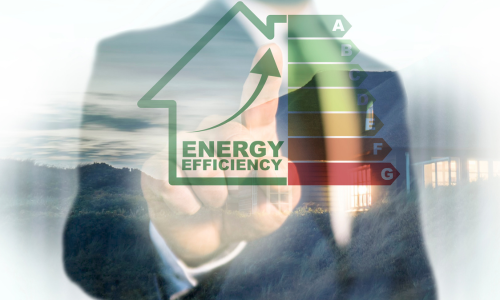
As we move toward 2025, energy efficiency in rental properties is becoming a critical focus for both landlords and tenants. With governments and environmental advocates pushing for sustainability, rental properties are being scrutinized for their energy use and environmental impact. This article explores the key changes in energy efficiency standards for rental properties, what it means for landlords, and the benefits for tenants.
What are Energy Efficiency Standards?
Energy efficiency standards are regulations designed to ensure that homes use energy effectively, from insulation and heating systems to appliances and building materials. These standards aim to reduce energy consumption, lower carbon emissions, and enhance the comfort of homes.
In the UK, energy efficiency standards for rental properties are primarily determined by the Energy Performance Certificate (EPC), which rates properties from A (most efficient) to G (least efficient). Properties with low EPC ratings face stricter regulations, especially as 2025 approaches.
EPC Rating and Legal Requirements in 2025
Currently, rental properties in England and Wales must have a minimum EPC rating of E to be rented out. However, starting in 2025, new tenancies will require a minimum EPC rating of C, with existing tenancies expected to follow suit by 2028. This shift will impact landlords who will need to invest in energy-saving improvements to meet these standards.
Key Energy Efficiency Improvements
To comply with the new EPC standards, landlords will need to consider the following upgrades:
a. Insulation and Draught Proofing
Improving insulation in lofts, walls, and floors, along with sealing gaps in windows and doors, helps prevent heat loss and reduces energy bills.
b. Upgraded Heating Systems
Replacing outdated boilers with energy-efficient models, such as condensing boilers or heat pumps, can reduce heating costs significantly.
c. Double Glazing
Upgrading windows to double glazing helps retain heat and reduce heating demands.
d. Energy-efficient Appliances
Replacing old appliances with A-rated models and switching to LED lighting can help reduce electricity consumption.
e. Renewable Energy Sources
Investing in solar panels or other renewable energy sources can further reduce energy costs and improve the property’s EPC rating.
Benefits for Landlords
While improving energy efficiency may require an upfront investment, it offers several advantages:
a. Attracting High-Quality Tenants
Energy-efficient properties are increasingly attractive to tenants, as they typically result in lower utility bills and improved comfort.
b. Higher Rent Potential
Properties with higher EPC ratings may command higher rents, as tenants are willing to pay more for energy-efficient homes.
c. Reduced Maintenance Costs
Energy-efficient homes are less prone to issues like damp or condensation, which lowers repair costs.
d. Enhanced Property Value
Properties with better energy efficiency tend to have higher market values, making them a more attractive investment.
e. Tax Incentives and Grants
The UK government offers grants and loans to encourage landlords to make energy-efficient improvements, helping offset costs.
Impact on Tenants
For tenants, living in energy-efficient homes offers several benefits:
a. Lower Energy Bills
Energy-efficient properties use less energy, meaning lower heating and electricity costs.
b. Improved Comfort
Better insulation and efficient heating systems help maintain consistent temperatures, providing a more comfortable living environment.
c. Environmental Benefits
Tenants can reduce their carbon footprint by living in homes that consume less energy, supporting sustainability efforts.
Ensure your property meets the new standards - contact us for expert advice and solutions today!
